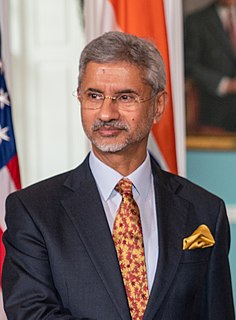A Quote by Ahmed Rashid
The idea of a permanent U.S. military presence in Afghanistan, as opposed to an economic presence, is going to create a new wave of hostility toward the United States.
Related Quotes
We're pursuing a strategic partnership with Afghanistan on the case of the United States and Afghanistan where we're going to push toward a future. It is the future that the Afghans desire with the United States. It is a future that the Afghans desire with the international community and we desire that as well.
You have a lot of suspicion from the neighbors of Afghanistan about U.S. intentions. Iran is already, to some extent, trying to undermine the U.S. in Afghanistan. Russia is now becoming increasingly nervous about a more permanent U.S. presence in Central Asia. And China is not keen that the U.S. should be so close to its borders over a long period of time. Certainly, if the U.S. is going to be there for a long time, it's going to exacerbate regional tensions.
I don't believe in the theory that the United States is reducing its presence in the Middle East. Quite the contrary, in the Gulf, we see an increase in American military presence, as well as an increase in American investments. The argument is more accurate when one says America is focusing more attention to the Far East. But I don't believe it comes at the expense of the Middle East.
They [people of Afghanistan] didn't want Al-Qaeda in their country. They didn't appreciate the Taliban taking control. But they really have an incredible amount of dignity. And by that, they are grateful for America's help in ridding them of the Taliban. The average, ordinary person is glad that their daughter can go to school now. There's no public executions, no banning of soccer games. The difference is, they're appreciative, but they don't want any prolonged military presence of the United States there.
The BRIC countries - Brazil, India, China, Turkey, South Africa, Indonesia even, and Russia - are now new actors. Over the last eight years, China multiplied by seven its economic presence and penetration in the Middle East. And if this happens on economic terms and there is a shift towards the East, the relationship between these countries and Israel is completely different from the United States. And it means that the challenges are going to be different, because China is not supporting Israel the way the U.S. are supporting Israel.
From the standpoint of a Middle Eastern citizen, Americans look like a bully forcing our way of life on the Islamic way of life. The notion of purity is very important in Islam, and a lot of the negative warlike actions taken against us have to do with our physical presence in the Middle East. Osama bin Laden was trying to get the American, or protesting the American military presence in Saudi Arabia. It's not surprising that our strong presence in Iraq has produced a wave of resistance anger, extreme anger in some cases, and a permissive atmosphere that allows these people to go undetected.
We are beginning to see practical support. And this is a very significant sign of the movement towards a new era, a new age.... We see both in our country and elsewhere... ghosts of the old thinking.... When we rid ourselves of their presence, we will be better able to move toward a new world order...relying on the relevent mechanisms of the United Nations.































